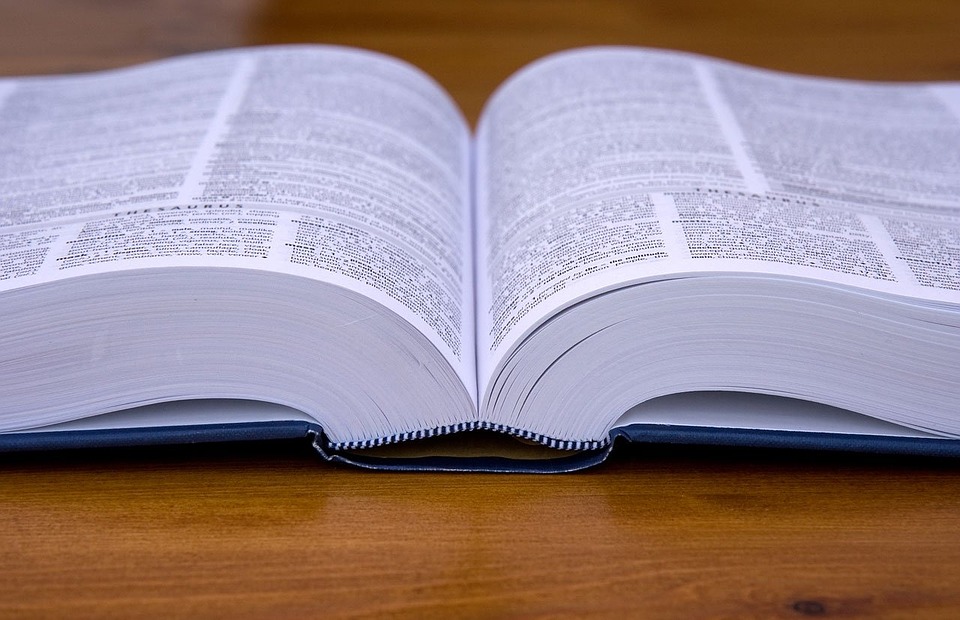Sign up for The Media Today, CJR’s daily newsletter.
It seems that we don’t give things nicknames anymore. Instead, we “dub” them:
A jail in Florida has been “dubbed” the Green Roof Inn. A police officer who fantasized about doing horrible things to women was “dubbed” the Cannibal Cop. And a new “beer-centric” pub in California has been “dubbed” The Rake.
Oh, wait. That last one is its real name. So does that count as a “dubbing”?
Why not? Just because it violates what most people associate with “dubbing”?
Say the word “dubbing” without context and many will conjure images of King Richard saying, “Kneel, Robin Hood,” tapping Robin on each shoulder with a sword, and then saying, “Arise, Robin, Baron of Loxley.” Robin Hood had been “dubbed.” To “dub” something was a noble act.
Once you know the history of “dub,” though, you might not want to use it anymore.
The noun “dub,” according to the Oxford English Dictionary, showed up in English in the mid-15th century to mean an artificial fly used in fishing. In 60 or so years, the Scottish were using “dub” to mean a “muddy or stagnant pool.”
In the last quarter of the 16th century, “dub” was an onomatopoeia, a word that is phonetically close to a sound. “Dub-a-dub” was the sound of a drum being beaten; “dub” was a single beat. It later was expanded to mean any “short blunt dull-sounding thrust or blow,” the OED says.
“Dub” has also been criminals’ slang for a key, “especially one used for picking locks,” the OED says, and American slang for “One who is inexperienced or unskilful at anything; a duffer, fool.” It’s also been a marijuana or tobacco cigarette stub, or a car wheel rim, according the Concise New Partridge Dictionary of Slang and Unconventional English.
Don’t know about you, but we’d not be overly pleased to be associated with any of those forms of “dub.”
The etymology of all but the drum form is unclear, the OED says, but they all seem unrelated to the noble “dubbing.” That seems to come from Old French, and is a lot older than those other “dubs,” appearing as a verb even before 1100. Even at its first appearance, it meant “To invest with a dignity or title.”
ICYMI: The Pittsburgh Post-Gazette’s baffling editorial decision
It’s nice to have some dignity, but where is that dignity in the nickname “Cannibal Cop”?
By the 17th century, “dub” still had dignity, but “often mockingly or humorously used,” and it had also acquired the sense of “To name, style, nickname; to speak of or set down as: now usually in pleasantry or ridicule.”
Among other things, the verb “dub” has also meant to trim hedges, to hit a bad golf shot, to cut off the comb and wattles of the rooster, to dress or adorn, to smear with fat and grease, or to have sex (vulgarly). Not much “dignity” in those, either.
Enter the 20th century and movies, and “dub” took on a new meaning: to provide an alternate soundtrack, often in another language or to have people on screen say things they hadn’t originally said. (Better than bleeping!) That usage showed up around 1930, the OED says. More broadly, “dub” meant transferring sound from one medium to another, such as from a wax or vinyl recording to film.
So “dubbing” also indicates a replacement: The original, noble “dubbing” gave something a new name or title; the modern “dubbing” substitutes sound.
That means using something’s real name, as in the new pub above, is not, strictly speaking, “dubbing.” If you’re giving something an original name, that’s actually “coining” the name or term. That derivation is from manufacturing money, but there is a connection: A “dub” was also a small copper coin used in India.
Back to “dubbing.” It’s usually used lightly and informally, but “dubbing” something too casually might inadvertently end up give the wrong impression.
The New York Times Manual of Style and Usage is unambiguous. Its entry on “dub” says this: “In the sense of naming or labeling (They dubbed it the Curriculum Outreach Plan, or COP), the overfancy word is best left for knighthood ceremonies.”
But the “Green Roof Inn” above might be an exception: Remember that one slang use of “dub” was a key, especially when used by criminals? Well, by extension, the word “dub” became a slang word for a prison. So “dubbing” a “dub” might be a stroke of genius.
ICYMI: Fox News lawsuit: What you need to know
Has America ever needed a media defender more than now? Help us by joining CJR today.



